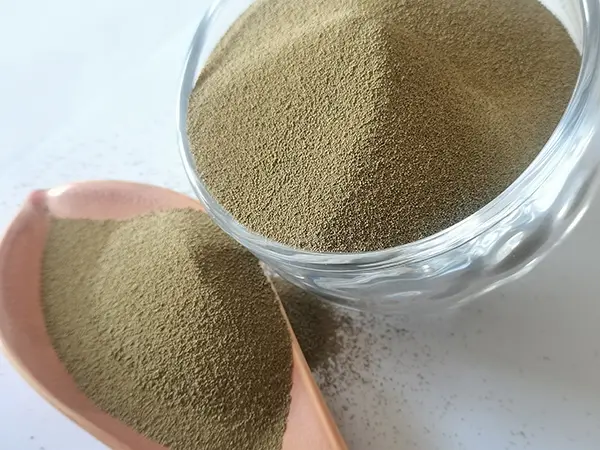The Uses of Resin Coated Sand An Overview
Resin coated sand, a specialized material produced from natural sand treated with synthetic resin, has gained considerable attention in various industries due to its outstanding characteristics. The unique properties of resin coated sand, including its excellent thermal stability, durability, and superior surface finish, make it an invaluable resource in fields such as foundry casting, construction, and even in the production of advanced materials for various engineering applications.
Foundry Industry
One of the primary applications of resin coated sand is in the foundry industry for producing complex metal castings. The process of sand casting involves pouring molten metal into molds formed from sand, and resin coated sand significantly enhances the quality of these molds. The resin coating allows for better bonding among sand grains, resulting in molds that are not only stronger but also exhibit a finer surface finish. This is particularly important for the production of intricate components where surface defects can compromise performance and aesthetics.
Furthermore, resin coated sand is also resistant to thermal degradation. This means that it can withstand the high temperatures associated with molten metal, ensuring that the mold retains its integrity throughout the casting process. By reducing the need for additional finishing processes, such as grinding or sanding, manufacturers can save time and costs while improving the overall quality of the final product.
Construction Applications
In the construction industry, resin coated sand is being increasingly utilized for enhancing the properties of concrete. The addition of resin coated sand as a mix component can improve the mechanical properties of concrete, such as its compressive strength and durability. This is particularly beneficial in the production of high-performance concrete required for structures exposed to severe environmental conditions, including bridges and high-rise buildings.
Moreover, projects involving the creation of decorative surfaces are also seeing the use of resin coated sand. When mixed with binders and pigments, it can produce aesthetically pleasing finishes that are both durable and weather-resistant. These properties make resin coated sand an attractive choice for landscaping, decorative walkways, and various architectural applications.
resin coated sand uses

Oil and Gas Industry
Another significant application of resin coated sand is in the oil and gas industry, particularly in hydraulic fracturing or fracking. In this process, resin coated sand is used as a proppant to hold open fractures in rock formations, allowing for the efficient extraction of hydrocarbons. The resin coating provides superior strength and performs well under high pressure and stress, which is essential in ensuring that the proppant remains intact and effective throughout the hydrocarbon extraction process.
The use of resin coated sand in fracking not only enhances operational efficiency but also minimizes the risk of environmental contamination. The material’s properties help reduce the accumulation of fines and the potential for sand migration that could lead to well integrity issues.
Advanced Material Production
Beyond its traditional uses, resin coated sand is also making inroads into the production of advanced composite materials. The unique binding characteristics offered by the resin coating enable the creation of composite materials that can be tailored for specific performance attributes. This includes materials utilized in aerospace, automotive, and electrical applications where high strength-to-weight ratios and thermal resistance are critical.
Furthermore, the ongoing research into eco-friendly resins and sustainable sand sources is paving the way for the development of greener alternatives. The push for sustainability in manufacturing processes is leading to innovations that can reduce the carbon footprint of resin coated sand production while maintaining its performance qualities.
Conclusion
In summary, resin coated sand is a versatile material with multifaceted applications across various industries. From the foundry sector to construction, oil and gas, and advanced materials production, its unique properties offer solutions that enhance efficiency, strength, and durability. As industries continue to evolve, the demand for innovative materials like resin coated sand will likely increase, leading to further advancements and applications. This adaptability makes resin coated sand a crucial element in the future of engineering and manufacturing practices, promoting not just efficiency but also sustainability.
Post time:Dic . 21, 2024 05:27
Next:where to buy foundry sand
